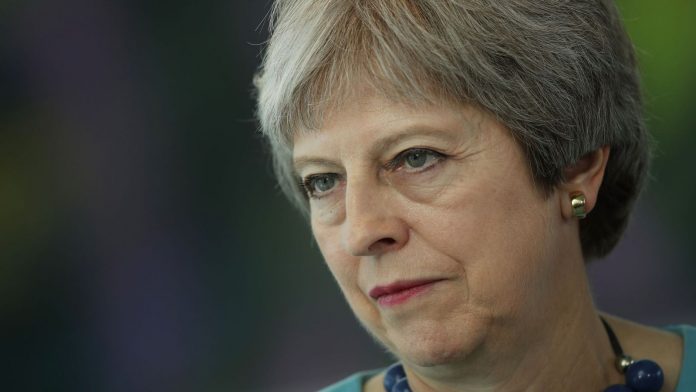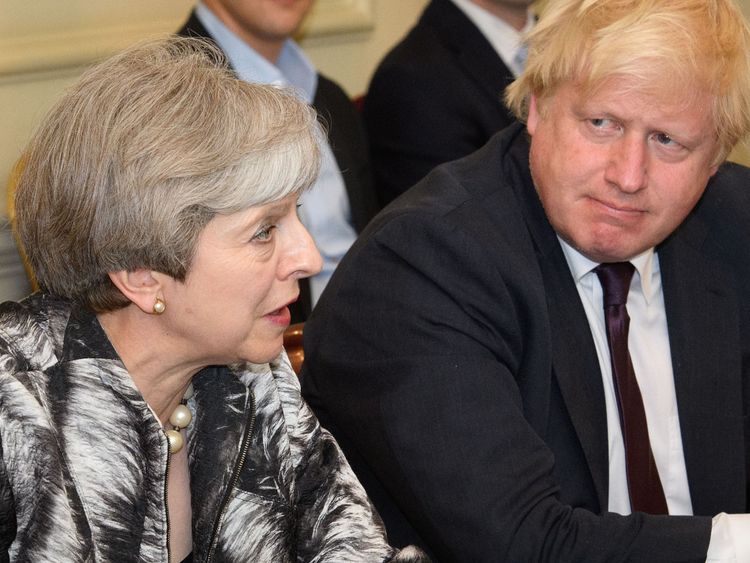[ad_1]
Theresa May faces a tough few days before MPs get ready for the summer recess.
After a week in which Donald Trump shot down her Chequers Brexit plan, and her foreign secretary and Brexit secretary resigned over the same issue, the next few days offer little respite for the prime minister.
The embattled PM faces tough tests before she can turn her attention to some holiday reading safe in the knowledge she will still be in power come the autumn.
Monday
MPs debated amendments on the customs bill – officially named the Taxation (Cross-Border Trade) Bill. The European Research Group (ERG) – Tory hardline Brexiteers – laid four amendments which the government accepted – and the bill passed.
Why is it so important?
The government’s decision to accept the amendments tabled by Tory Brexiteers brought claims the PM is running scared of the ERG.
Some critics even suggested Jacob Rees-Mogg, the ERG chair, is now actually in charge of Brexit policy rather than Mrs May.
The PM insisted accepting the amendments does not change her Chequers plan, but not all Tory MPs agree with her.
Some claimed the Brexiteers’ amendments trash the Irish border backstop plan, as well as the government’s favoured post-Brexit customs arrangement.
Indeed, Conservative Remainers reacted with anger at the government’s decision to accept the Brexiteer demands, with one claiming it is “complete madness”.
Their unhappiness prompted heated exchanges between both sides of the Tory party on Monday during the customs bill debate.
Tuesday
The trade bill, partner legislation to the customs bill, returns to the Commons for MPs to decide the framework for Britain implementing post-Brexit international trade deals.
Why is it important?
Tory Remainers have tabled amendments calling on the government to negotiate continued membership of the EU’s customs union after Brexit, or chase membership of the European Economic Area – commonly referred to as a “soft” Brexit.
Following the publication of the PM’s Chequers plan in a white paper, it had been thought Tory Remainers would withdraw their amendments and offer their support to the government’s proposals.
However, their anger at the PM’s acceptance of Brexiteers’ demands on the customs bill could see a counter-rebellion.
Labour might choose to support any rebel amendments that fit with their own Brexit policy, if there’s a chance of defeating the government.
Wednesday
The last PMQs before the recess.
It has been reported that Boris Johnson may make a dramatic resignation speech.
Mrs May also addresses the 1922 committee and will be grilled on Brexit by the liaison committee of senior backbench MPs.
Why is it important?
It could be the unofficial deadline for Tory MPs to trigger a vote of no confidence if it is to make the timetable before the Commons breaks up for summer, if – as suggested – the recess date is brought forward.
Thursday
Parliament could go into recess – a week earlier than planned.
Amid the current divisions in the Tory party over Brexit, there are suggestions the government could bring forward a motion to wrap parliamentary business up early.
This would see MPs end their parliamentary work for the summer on Thursday, rather than next Tuesday as currently planned.
Any motion proposing this would have to be authorised by MPs.
Bringing forward the summer recess would reduce the amount of time Tory MPs have to arrange a vote of no confidence in the PM, should they wish to do so.
If this is the case, if Mrs May is still in the job on Thursday evening, she is safe to go on holiday knowing she will be prime minister when the leaves start falling from the trees.
[ad_2]









